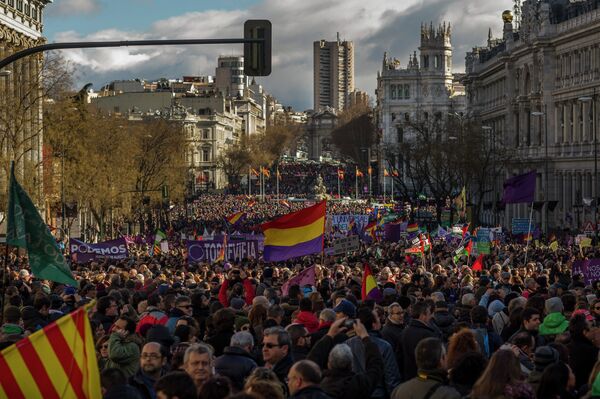On Wednesday, German newspaper Die Welt began the month by listing some of the most important decisions that will take place.
June 14-15, Washington
In December last year the US Federal Reserve decided to raise its benchmark interest rate for the first time in ten years, by 25 basis points to 0.50 percent from 0.25 percent, which was followed by a plunge on the world's stock markets.
This time, traders estimate a 34 percent probability of another rate hike, which would again have a significant effect on the world economy, particularly for players in emerging markets who hope their dollar-denominated debt remains cheap to service.
June 21, Karlsruhe
The European Central Bank (ECB) will face a major challenge if Germany's Federal Constitutional Court in Karlsruhe rules that the Outright Money Transactions (OMT) program the ECB outlined in 2012 to calm the Eurozone is unlawful.
ECB chief Mario Draghi vowed to do "whatever it takes" to save the single currency, and proposed a bond-buying program which has been challenged by a group of German academics and politicians from the left-wing Die Linke party.
They are opposed to the OMT and the ECB's quantitative easing bond-buying program launched in March 2015, arguing that they constitute fiscal, not monetary policy, and as such extend beyond the central bank's mandate.
The OMT would allow the ECB to potentially buy unlimited amounts of government debt from countries in trouble that request assistance, thereby transforming itself into a de facto lender of last resort.
The plan has not been implemented, but in 2012 it succeeded in restoring confidence to eurozone markets by defusing speculation on the sovereign debt of highly indebted countries like Spain and Italy.
The European Court of Justice has ruled the OMT to be lawful, but Germany's Constitutional Court in Karlsruhe has already expressed doubts over its legality. If German judges rule against the OMT program they could also prohibit the Bundesbank, the ECB's largest shareholder (25.6 percent), from taking part in the program.
If voters in the UK decide to leave the EU, the shock waves would reverberate across the continent. Accounting firm PriceWaterhouseCoopers has estimated that Brexit would cost the UK £100 billion ($145 billion) and a million jobs, and Bloomberg has estimated that European banks stand to lose more than €100 billion ($114 billion) from Brexit.
"Things could get even worse, particularly if Brexit becomes an example. Europe has been developing closer union for decades – now it could drift further apart. What happens if other states emulate the British and leave the EU? … If June 23 is the first day of a domino effect, the results could be disastrous," Die Welt reported.

"Left-wing populists are close to victory," ahead of Spain's June 26 elections, reports Die Welt.
Prime Minister Mariano Rajoy's conservative People's Party is currently leading in polls which give it 30 percent of the vote, but the left-wing Podemos Party led by Pablo Iglesias has just reached an agreement to ally with the green-communist United Left alliance. If that umbrella group can extend to the Socialists, Spain's conservatives would be outvoted.
The German newspaper believes a victory of the left, like in Greece, "Would be fatal."
"At 20.1 percent, unemployment (there) is as high as anywhere in the EU. The country is clearly going to fail to reach the Maastricht budget deficit limit of three percent this year. The future government must save €20-25 billion ($23 —28 billion), otherwise the continent is threatened with another disaster like Greece – only much worse."




